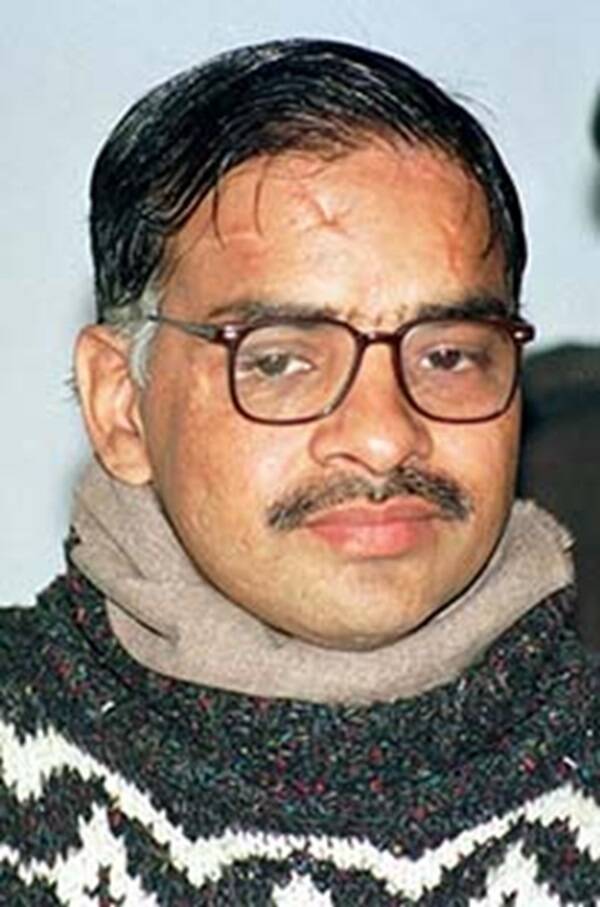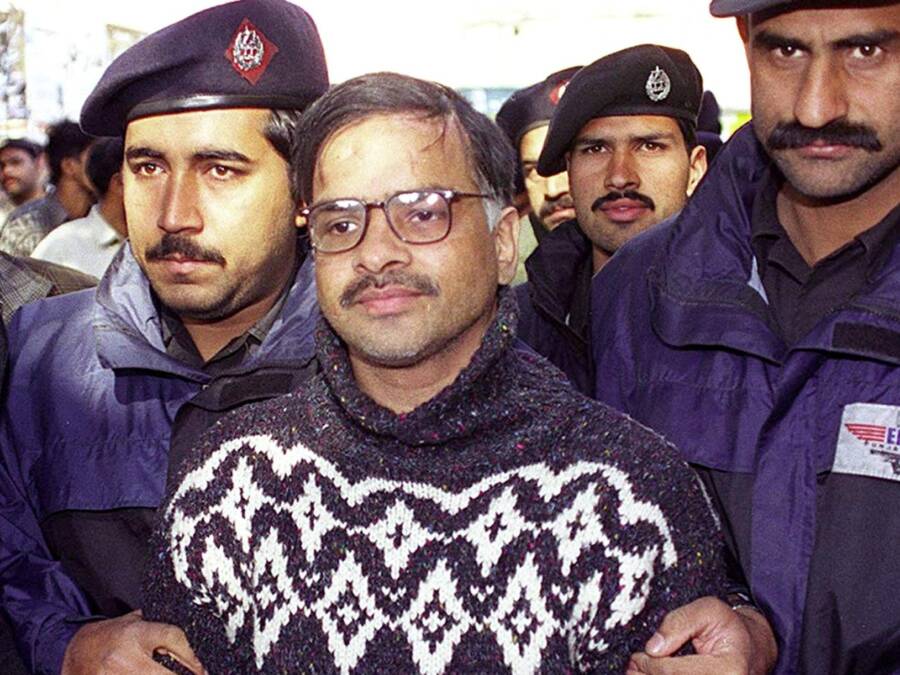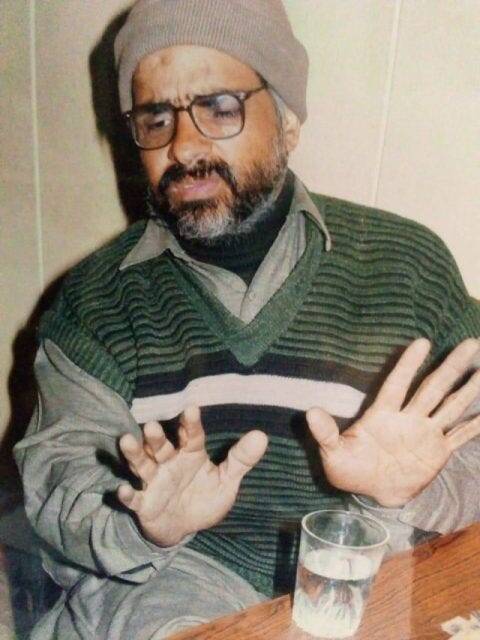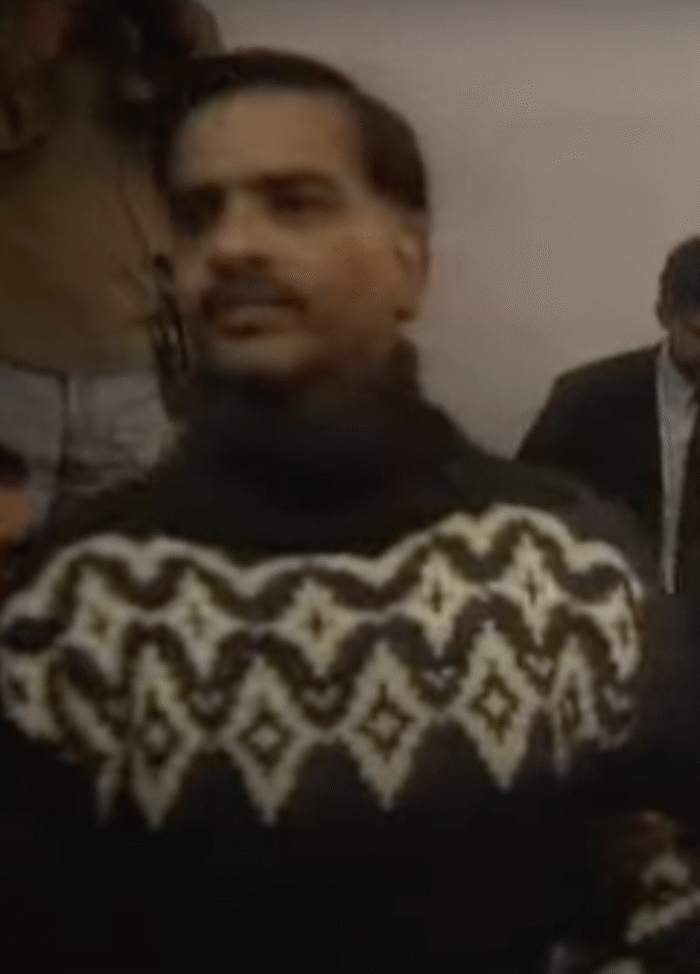Before his arrest in 1999, Javed Iqbal sexually assaulted and strangled 100 boys, then dissolved their remains in a vat of acid.

Wikimedia CommonsJaved Iqbal confessed to assaulting and murdering 100 boys before dissolving their bodies in acid.
Over the course of one horrific year, Javed Iqbal murdered 100 boys in Pakistan. Iqbal would lure the boys to his house, sexually assault and strangle them, and then dissolve their remains in acid.
By the time he was arrested in 1999, Iqbal had become Pakistan’s most murderous serial killer. He was sentenced to 100 death sentences, and a judge ruled that he would die like his victims — by strangulation. However, Iqbal died mysteriously in prison before the sentence could be carried out.
Discover the gruesome story of Javed Iqbal, the Pakistan serial killer whose story was featured in the controversial film Javed Iqbal: The Untold Story of A Serial Killer (2023).
Javed Iqbal’s Early Life
Born in 1961 in Lahore, Pakistan, Javed Iqbal grew up with comfort and wealth. The sixth of eight children and the son of a successful businessman, he spent his childhood in a luxurious, spacious home.
As an adult, Iqbal was financially supported by his father. His father bought him a villa to live him, and helped him start a steel recasting business in 1978. When his father died in 1993, Iqbal also inherited millions of rupees, which allowed him to build a large swimming pool at his house, and purchase multiple vehicles.
Despite his privileged upbringing, however, Iqbal soon ran into serious trouble with the law. In 1985 and 1990, he was accused of sodomy, though charges were never filed against him.
But there seemed to be some truth behind the accusations. And Javed Iqbal would soon escalate to murder.
How Javed Iqbal Lured His Victims
Javed Iqbal had many methods of luring victims. He opened up a video game shop where he offered tokens at low prices or sometimes for free to attract young boys. According to the Pakistan news site Dawn, Iqbal would occasionally drop a 100-rupee note on the floor, and if a boy picked it up, he would accuse them of stealing. Iqbal would then take the child into a nearby room, and sexually assault them.
When parents began to get suspicious about the video game store, Iqbal also opened up a fish aquarium, a gym, a school, and a discount shop as additional ways to lure victims.

YouTubeJaved Iqbal was arrested in 1999 after confessing to killing 100 children.
Then, he began to invite boys to his home. Javed Iqbal targeted vulnerable boys — runaways, beggars, or street children — between the ages of six and 16 and lured them to his home by offering shelter or assistance.
One by one, they began to disappear.
There were suspicions about Iqbal’s behavior, but Iqbal was able to escape serious detection. His wealth and social status protected him. What’s more, missing children were common in the area and often overlooked, which made them a prime target.
Indeed, Javed Iqbal could have gotten away with murder for a long time. But in 1999, he confessed everything to the police.
The Confession Of Pakistan’s Worst Serial Killer
In December 1999, Javed Iqbal sent a handwritten letter to both the police and a local newspaper in Lahore. In it, he confessed to killing 100 boys.
When police searched Iqbal’s house, they found the walls and floors stained with blood and a chain Iqbal said he had used to strangle the boys. They also found Iqbal’s meticulous records of his victims, including photographs, and details about the boys’ names and ages.
Investigators also uncovered two large vats filled with acid, where human remains were partially dissolved. A disturbing note explained that the bodies had been deliberately left behind for the police to find.

YouTubeThough Javed Iqbal initially confessed, he later recanted his confession and claimed to be innocent — though police found ample evidence of his crimes at his home.
A massive manhunt began, but Iqbal couldn’t be found. His photo was printed across the front newspapers and TV bulletins; Families of missing children crowded police stations in hopes of finding their loved ones. All the while, Iqbal was hiding in drainage tunnels and caves, accompanied by a few teenage boys who helped him stay out of sight.
Then, on Dec. 30, 1999, Javed Iqbal calmly walked into the office of the Daily Jang newspaper. According to The New York Times, he told the receptionist: “I am Javed Iqbal, killer of 100 boys. Please tell someone in the reporting section that I have come to surrender.”
The Arrest And Death Of Javed Iqbal
According to Javed Iqbal, his murders had been driven by revenge. He claimed that the police had beaten him after he was accused of sodomy, which inspired his plan to kill 100 children.
“I was so badly beaten that my head was crushed, my backbone broken and I was left crippled,” Iqbal said. “I hate this world… My mother cried for me. I wanted 100 mothers to cry for their children.”
He said that he had “no regrets” and that he could have “killed 500… But the pledge I had taken was of 100 children, and I never wanted to violate this.”

AP Archive/YouTubeJaved Iqbal was sentenced to die like his victims.
After Javed Iqbal was found guilty of 100 counts of murder, the judge handed down an unusual sentence. Iqbal was to be strangled in front of the victims’ families, his body cut into 100 pieces and dissolved in acid, just like he had done to so many innocent boys. However, human rights groups condemned the sentence, and it was never carried out. Instead, Iqbal was kept in prison.
Three of Iqbal’s teenage accomplices were also arrested and convicted. They were found guilty of helping Iqbal dispose of bodies and harboring him while he was on the run. All three faced serious prison sentences for their role in the horrific crimes.
Then, on Oct. 8, 2001, Iqbal and one of his accomplices were found dead in their prison cells. Officials claimed they had hanged themselves with bed sheets tied to iron bars. However, autopsy reports showed signs of blunt force trauma and bruising, leading many to suspect that Iqbal and his accomplice were murdered.
To this day, questions remain about whether Javed Iqbal’s death was a suicide or murder. No one came to claim his body, and the mystery surrounding his death remains unresolved.
But Javed Iqbal left behind a disturbing legacy. He stands as Pakistan’s worst serial killer, and a film made about his life and crimes Javed Iqbal: The Untold Story of a Serial Killer, was so controversial in Pakistan that was initially banned by the Punjab government.
Now that you’ve read about Javed Iqbal, learn about Leonarda Cianciulli, the killer who made soap and teacakes out of her victims. Then, check out this article on Anthony Sowell, the serial murderer who killed women and lived with their bodies.





